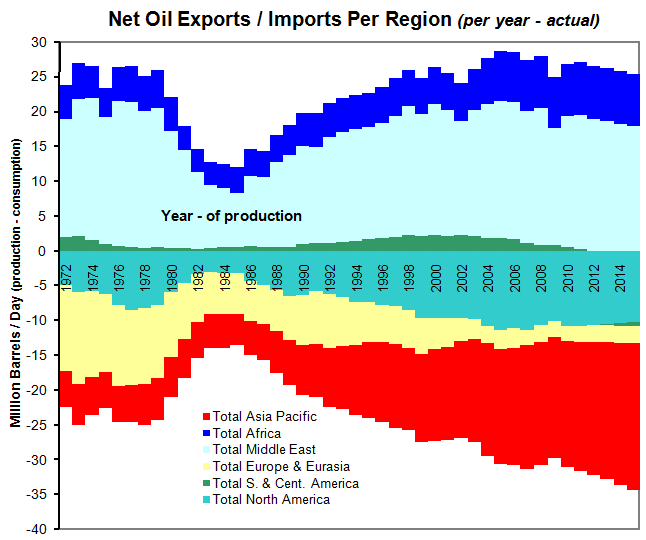276: UK Land Investment
07-04-2009
PropertyInvesting.net team
UK Market Context: House prices have dropped (some would say crashe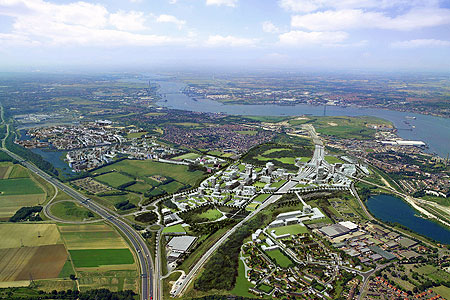 d) between -15% and -25% in the last 18 months. There are tentative signs that the bottom of the market has either been reached or is close to being reached. Expectations of further significant house price falls have receded. Meanwhile, building land prices have dropped significantly as developers have struggled to gain finance for new development projects and builders have entered a go slow period of construction – drip feeding supply as demand for new houses and flats has dropped. Builders have retrenched - not wanting to over-stretch themselves. Many have debit problems. But agricultural land prices have hardly budged downwards. They have been on the whole quite stable. Some land prices have actually increased in the last year, despite the financial turmoil and recession. We give our analysis on why this is, and give pointers to the future of agricultural and building land prices moving into the next decade.
d) between -15% and -25% in the last 18 months. There are tentative signs that the bottom of the market has either been reached or is close to being reached. Expectations of further significant house price falls have receded. Meanwhile, building land prices have dropped significantly as developers have struggled to gain finance for new development projects and builders have entered a go slow period of construction – drip feeding supply as demand for new houses and flats has dropped. Builders have retrenched - not wanting to over-stretch themselves. Many have debit problems. But agricultural land prices have hardly budged downwards. They have been on the whole quite stable. Some land prices have actually increased in the last year, despite the financial turmoil and recession. We give our analysis on why this is, and give pointers to the future of agricultural and building land prices moving into the next decade.
Alternative Investments Thin on the Ground: There is a dearth of good places to invest at present. Many of the wealthiest individuals sold out of the stock market as it crashed (remember the FT100 index dropped from 6600 in 2008, briefly touching a low of 3350, before recovering to 4400. Much of this equity was converted to cash. of course, lot of money was lost during this asset price collapse. The last time the stock market collapsed in the period March 2000 to end 2001, much of this money was put into UK property as a safe hav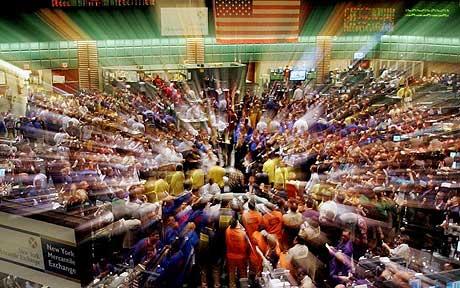 en – and subsequently house prices rose dramatically to a peak at the end of 2007. As the stock market crashed again end 2008, some of this money has again been put into property in the UK by the most wealthy individuals purchasing at what some would describe as bargain low prices. But some of this money has also been invested in land – as a safe haven for the future. Remember, bonds and savings rates are miserably low. Stock market returns are notoriously erratic. Over a ten year period, the FT100 has dropped despite inflation running at 2%-3% per annum (in real terms, the FT100 is down at least 40% over the last ten years, in part because of higher taxes, poor company performance, and competition from capital in foreign markets with potentially higher returns). Confidence in the management of the UK economy is not high in view of the massive fiscal deficit, despite the UK being more or less self sufficient in oil/gas production and having 80% taxes at the petrol pumps, in addition to massive tax rises on employee earnings and national insurance plus stamp duty on property and stocks in the last ten years.
en – and subsequently house prices rose dramatically to a peak at the end of 2007. As the stock market crashed again end 2008, some of this money has again been put into property in the UK by the most wealthy individuals purchasing at what some would describe as bargain low prices. But some of this money has also been invested in land – as a safe haven for the future. Remember, bonds and savings rates are miserably low. Stock market returns are notoriously erratic. Over a ten year period, the FT100 has dropped despite inflation running at 2%-3% per annum (in real terms, the FT100 is down at least 40% over the last ten years, in part because of higher taxes, poor company performance, and competition from capital in foreign markets with potentially higher returns). Confidence in the management of the UK economy is not high in view of the massive fiscal deficit, despite the UK being more or less self sufficient in oil/gas production and having 80% taxes at the petrol pumps, in addition to massive tax rises on employee earnings and national insurance plus stamp duty on property and stocks in the last ten years.
Why the Smart Money Is Shifting Into Land: In summary, some of the smartest money investors are invested in agricultural land. Why? Here we provide an analysis of the pros and cons of land investment in for a look forward 5-10 year timeframe.
Pros
· Capital land asset prices are expected to rise because:
1. The UK population is forecast to increase from 60 at present to 70 million by 2030 creating pressure on land - with more homes required for this expanding population
2. Oil price rises will make importing agricultural commodities far more expensive to transport – CO2 emissions tariffs will also likely make imports of foreign food-agricultural products more expensive and less competitive
3. Speculative potential will increase for agricultural land close to cities, towns and villages - where land may be converted through planning consent to building land, or land for use for leisure purposes
4. There are very few good UK alternative investments for wealthy individuals
5. The UK is considered a relatively safe haven for investment – through land and property (particularly London property)
6. UK sterling is expected to rise if oil prices rise – Note: UK oil/gas production decline rates are ca. 5% per annum – if UK oil consumption drops with efficiency improvements by the same amount – this will mean indigenous oil/gas supply and demand could be more or less equally balanced, particularly if wind-nuclear-clean coal power can be expanded
· There are stable cashflows from agricultural rents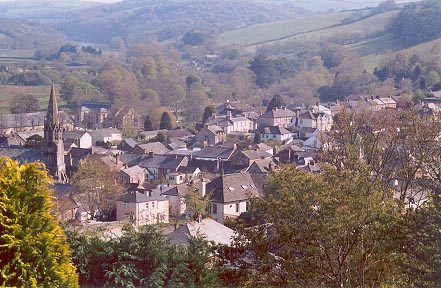
· It is possible to locate distressed land sales if local knowledge and networks are used
· It is possible to identify pockets of land that are not used, that can be purchased if the land owner can be identified
· Many wealthy city financiers put money safely away into land to avoid tax
· Many wealthy city people like to purchase land for leisure – horse riding-sables, status of becoming small land owner, safe haven for putting money away, interest in land and countryside and/or to become a British Landowner (it goes with the Land Rover and green wellies!)
· There are many subsidies that land owners can claim for – even if the land is fallow
Cons
· Low agricultural rents and yields for most land
· Some land is not possible to rent/lease, hence there is no yield
· Land maintenance cost are rising with greater environmental restrictions and regulation – meaning more maintenance (hedges, woods) is required or mandated
· Competition for land is still high in auctions from wealthy land owners keen to increase their portfolios, and wealthy city people
· Fly tipping is a big problem in some areas – normally close to cities – this normally becomes the land owners responsibility to clean-up and can be very expensive
· Distressed land sales are not common in view of fairly healthy agricultural commodity prices despite the recession, and fairly robust outlook for commodities
Land Acquisition
Purchase of land is notoriously difficult for the most prospective pieces of land. One of the reasons is because of "human behaviour". Land arouses huge emotions. Most land owners like to control their land. They can feel threatened by someone who they do not know, trying to purchase land close by to theirs. The “not in my back yard” mentality of all home owners is another constant barrie r to any change in land use. Trust and communication is very important for prospective land owners and developers. Land owners will naturally sell land to someone they know privately – normally another farmer, friend or family. When land comes up for auction, local land owners will normally bid high for pockets of land. A bit like playing monopoly. Someone who can buy and control a large portfolio has more power and influence – and can potentially make greater returns from this acquisitive style. Influence in the local community is also an aspiration of some land owners. Maintenance costs will be lower per acre if the land owner has a large portfolio that is well managed and focussed. It’s not an easy business owning lots of small pockets of land spread-out across a region, country or countries. It is more time consuming to manage and rents will likely be lower by not focussing on acquiring in a smaller area - normal this is local to where the land owner lives. Creating networks and identifying opportunities "on the ground" is key. You need the inside knowledge of the local market, networks, contacts and opportunities.
r to any change in land use. Trust and communication is very important for prospective land owners and developers. Land owners will naturally sell land to someone they know privately – normally another farmer, friend or family. When land comes up for auction, local land owners will normally bid high for pockets of land. A bit like playing monopoly. Someone who can buy and control a large portfolio has more power and influence – and can potentially make greater returns from this acquisitive style. Influence in the local community is also an aspiration of some land owners. Maintenance costs will be lower per acre if the land owner has a large portfolio that is well managed and focussed. It’s not an easy business owning lots of small pockets of land spread-out across a region, country or countries. It is more time consuming to manage and rents will likely be lower by not focussing on acquiring in a smaller area - normal this is local to where the land owner lives. Creating networks and identifying opportunities "on the ground" is key. You need the inside knowledge of the local market, networks, contacts and opportunities.
With regards to good quality fertile land close to large population centres, as long as oil prices rise, we would expect land prices to rise because:
· There is normally a link between commodities and land prices (land is like a commodity because commodities such as wheat, beef, lamb and corn grows on land)
· The cost of shipping commodities from abroad will rise (ships, airlines) making local produce relatively lower in price, more competitive and therefore increase the value of the land
· Food prices will rise, along with it raw agricultural commodities prices and land prices
· Land will be purchased as a hedge against inflation
· Land will be purchased for installation of wind turbines in the most wind-swept locations close to electricity infra-structure where permits can be attained
· Land for forestry and biomass will become more popular - carbon credits could also help boost forestry land prices
· Market gardening will increase close to cities – because imports of fruit and vegetables via airlines, ships and lorries will drop
Peak Oil Link: As our regular visitors are no doubt aware, we believe Peak Oil (production) was July 2008 and a supply-demand crunch will occur shortly that will send oil prices sky-rocketing. If you agree with this prediction, then Land is very likely a good place to invest. Remember, land is a resource, and as resources become scarce - in shorter supply – then resources prices should rise. So we think the outlook for land prices is broadly positive for the next ten years.
Transition Society Scenario: For UK residents that have a very gloomy or bleak outlook, if the economy goes completely pear shaped coinciding with skyrocketing oil prices, having land to grow your own food on is a good hedge against food shortages and/or massively escalating food prices in future years. Ultimately, if printed money values drop and inflation and debit increase, land prices could still hold up well because one can do something productive with land (also like houses that one can live in and are a necessity). The days of importing tomatoes from Israel and lamb from New Zealand via refrigerated planes may be drawing to a close – having some good quality local land to grow local produce for local markets could be a good investment in this downside scenario.
Land Ideas
Below are some Land Ideas to help get you thinking:
· Purchase land on the fringe of cities where there is a relatively high chance the land can be converted from agricultural to building or commercial land
· Purchase land in windy locations with high chance of conversion for use as wind farms
· Purchase land fairly close to major wealthy cities like London that have 5-15 acres for horses and stables and wealthy city people
· Purchase land with fast flowing streams and rivers within them, where a micro-hydroelectric scheme can be proposed
· Purchase pockets of disused land in villages, towns and cities with high chance of conversion to building land
· Purchase small pieces of very fertile land close to cities and towns than can one day be used for market gardening – in expectation of a resurgence in this type of farming – along with demand for allotments to grow local food (as oil prices sky-rocket)
· Buy a property with an old bungalow or pre-fabricated property with large plot, then demolish and re-build a large luxury house – before purchasing, secure an option to purchase surrounding land (e.g. 0.5 to 5 acres) so the new house has massive prestigious grounds – for horse, orchards, woods etc
Land Purchase
For those that have no experience in land acquisition, we advise you attend and watch a few land auctions, to get a feeling for prices, bidding strategies and the local market.
Furthermore, there is no better way than to go around knocking on doors to meet people that you think may be interested in selling a plot of land, informally. But this is a long process, you’ll probably find it hard going and most leads don’t turn into anything solid. Even if they do firm up, don’t be surprised if the land owner is just taking your idea, going to the nearest land agent, then selling it in a competitive situation for a far higher price than you offered (or were about to offer).
 Finally, land is not a low risk investment. Most banks will not lend more than 50% caital against land. You need to be cash rich or have a very good investment proposal worked up to convince a bank to lend money against the land, particularly in the current climate. But the potential rewards are gigantic. One good deal can be enough to set yourself and family up for retirement. You’ll need to be savvy, have local knowledge, be risk-taking and be action focussed to achieve this. An example is being able to purchase two acres of agricultural land on the fringe of a village, then achieve planning permission to convert the land for building use. Then sell to a builder-developer. If you did achieved this (rather unlikely), the land prices can rise 10-100 fold. You could make >$1 million on one deal. But most land investments will have low yields, likely steady price rises over future years and be relatively hard work with maintenance liabilities etc. If rent out the land and get the leaseholder to perform the maintenance for you, this will help.
Finally, land is not a low risk investment. Most banks will not lend more than 50% caital against land. You need to be cash rich or have a very good investment proposal worked up to convince a bank to lend money against the land, particularly in the current climate. But the potential rewards are gigantic. One good deal can be enough to set yourself and family up for retirement. You’ll need to be savvy, have local knowledge, be risk-taking and be action focussed to achieve this. An example is being able to purchase two acres of agricultural land on the fringe of a village, then achieve planning permission to convert the land for building use. Then sell to a builder-developer. If you did achieved this (rather unlikely), the land prices can rise 10-100 fold. You could make >$1 million on one deal. But most land investments will have low yields, likely steady price rises over future years and be relatively hard work with maintenance liabilities etc. If rent out the land and get the leaseholder to perform the maintenance for you, this will help.
Another critical point is to get yourself an expert land solicitor. They are not easy to find. It is not like house conveyancing. You need to check the credentials of your land solicitor - make sure they have suitable experience, knowledge and reputation - a trusting fee paid partner in your ventures. This is particularly important because the deal structures are complex, securing land purchase options and confidentiality agreements or letters of intent are all part of a process of value creation. An example to make the point is:
-
you approach a land owner - who agrees they may want to sell a parcel of land
-
you then enter into a confidential options agreement that secures your options-rights within a period to purchase subject to due diligence
-
you then do searches, due diligence
-
you raise money, secure outline planning consent
-
you exchange contracts
-
you then market competitively to a number of developers (or put on open market)
-
you close the deal and achieve stellar returns
All these step require excellent advice and timely legal support from a land solicitor.
Finally, for those that would like some context behind why we think oil prices will rise in the next few years - leading to higher UK land prices, refer to the summary charts below.
We hope this special report has helped improve your knowledge of land investment and given you a few ideas to improve your investment returns. We prepared it simply because we thought it would interest our you- in view of land having such a huge potential to create stellar returns - and this is what we understand visitors to PropertyInvesting.net are interest in..... If you have any comments, please email us on enquiries@propertyinvesting.net
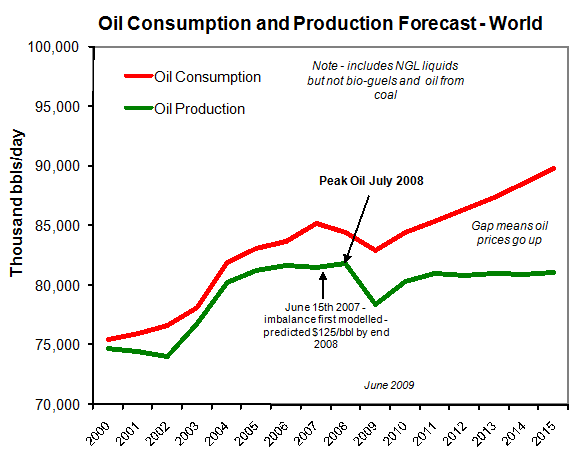 Peak Oil
Peak Oil
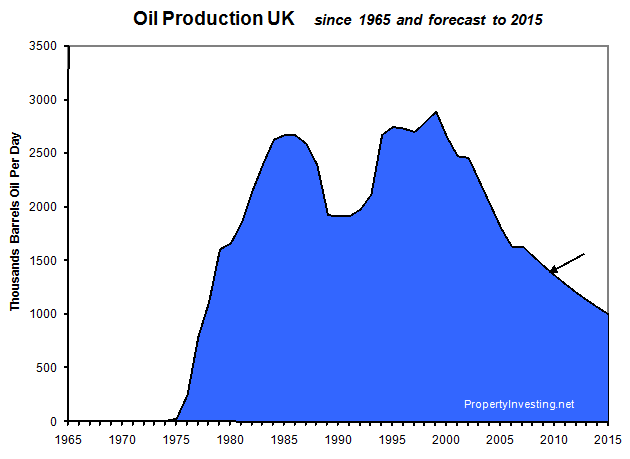
Oil Export Imports - Global - actual and forecast
